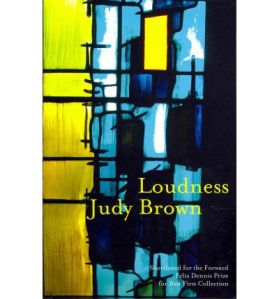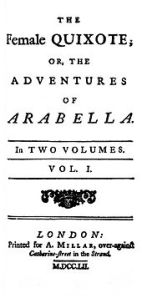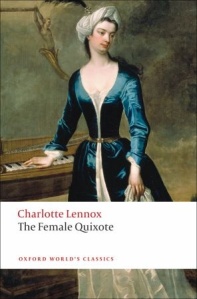Over the next few months, I will be the marketing intern at Gladstone’s Library. Whilst living and working in a library, it would be a crime not to read, and so I am going to be reviewing and reading all the books I can get my hands on, and highlighting which made me Glad(stone), and which made me Mad(stone). I assume at some point I’ll have to add a category of ‘Indifferent(stone)’.
Book the fourth: Loudness by Judy Brown
(from the library collection)
One of the things about my internship that I really love is the opportunity to read a book and then discuss it with the author over dinner. I’ll never get the option to quiz Gerard Manly Hopkins about ‘The Windhover’ but here I had the opportunity to pickle the brains of Judy Brown, our current writer in residence, as I read the book, and so I had to take it.
And good thing I did, because I misread ‘Spontaneous Combustion’ (which is eerie at the best of times), and absolutely terrified myself – luckily at lunchtime Judy was able to tell me that I was being an idiot and that televisions can not kill people. The poem was still haunting, but at least I could watch tv without fearing for my life.
Loudness is Judy’s first collection of poetry and is really, really good. I’m really bad at reading poetry generally, let alone poetry that doesn’t rhyme, but I was still enchanted by the collection.
Something that was always drilled into me in Creative Writing class was the use of ‘significant detail’, of finding new ways to describe things that would make us see the world afresh. Here in Judy’s poems I was provided with instance after instance of significant details, which rather than being the rather try-hard, dry examples I was used to seeing in university, were alive, well-observed and really made me think ‘aw, crikey! That is how that looks’.
Cursive orange peels, children that turn like seals; her poems are full of such beautiful and arresting images.
After careful consideration, I would have to declare ‘The Ex-Angel’ to be my favourite poem. Defiant, almost punky, but coached, as ever, in the most elegant of language, it is filled with ideas and images that are humorous, but also slightly sad.
A book of poetry that doesn’t rhyme. It’s a hard sell for an uncultured slob like myself, but I’m very glad that I got to read it.
Glad or Mad: Glad.



